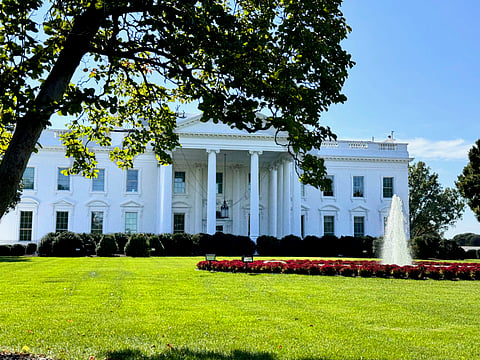

United States lawmakers failed to resolve the ongoing partial government shutdown on Wednesday, as rival proposals to extend funding met defeat in the Senate for a second consecutive day.
The impasse, now in its second day, has halted numerous federal operations, furloughed hundreds of thousands of workers, and prompted the Trump administration to withhold billions in infrastructure funds from Democratic-led states.
The Senate rejected a Republican-backed bill to maintain government funding through November 21, passing it 55-45 with support from two Democrats — John Fetterman of Pennsylvania and Catherine Cortez Masto of Nevada — and one independent, Angus King of Maine.
In a countervote, the Democratic measure, which linked funding extension to $1.5 trillion in additional healthcare spending, garnered 53 votes in favor but fell short, opposed unanimously by Republicans.
At stake is $1.7 trillion for agency operations, representing about one-quarter of annual federal spending.
The broader context involves health and retirement programs alongside interest on the $37.5 trillion national debt.
A bipartisan group of senators convened on the floor during votes, seeking compromise, though no breakthrough emerged.
Democrats demand assurances that President Trump will adhere to signed spending laws, citing past instances of noncompliance.
The shutdown marks the 15th since 1981, suspending scientific research, financial oversight, and environmental efforts.
Approximately 750,000 federal employees face furloughs, while essential personnel like troops and Border Patrol agents work without pay, assured future compensation.
The Department of Veterans Affairs continues burials at national cemeteries but has paused headstone installations and grounds maintenance.
Escalating tensions, the White House announced a freeze on $26 billion in infrastructure funding for Democratic-leaning states, fulfilling Trump's pledge to impose costs on political opponents.
This includes $18 billion for New York City transit projects, home to top congressional Democrats, and $8 billion for green-energy initiatives across 16 states like California and Illinois.
White House budget director Russell T. Vought justified the hold on New York funds as preventing delivery based on "unconstitutional DEI principles," a reference to diversity, equity, and inclusion policies criticized by conservatives.
Vice President JD Vance warned of potential layoffs if the shutdown prolongs, stating at a briefing, "We are going to have to lay people off."
He added that the administration aims to preserve essential services amid budget constraints, potentially extending purges to 300,000 federal workers by December.
The U.S. Patent and Trademark Office plans to cut 1% of its 14,000 staff, per an internal memo.
Republicans defend the moves, with Senate Majority Leader John Thune urging Democrats to "come to their senses and reopen the government."
He dismissed freeze concerns, saying, "Well, vote to open up the government and that issue goes away, right?"
Democratic leaders decried the actions as punitive.
Senate Minority Leader Chuck Schumer accused Trump of treating Americans as "pawns" and wielding the shutdown as "blackmail."
House Minority Leader Hakeem Jeffries highlighted job losses from New York project halts. Even Republican Senator Thom Tillis expressed worry that the freezes could "create a toxic environment," complicating shutdown resolution.
Expert analysis underscores broader fallout. Stephanie Leiser, a public policy lecturer at the University of Michigan's Gerald R.
Ford School, noted that uncertainty is already eroding economic stability through delayed investments, elevated borrowing costs, reserve depletions, and administrative strains.
As both parties eye 2026 midterms, blame-shifting intensifies, with agencies posting notices attributing the crisis to the "radical left" — potentially breaching the Hatch Act's partisan restrictions.